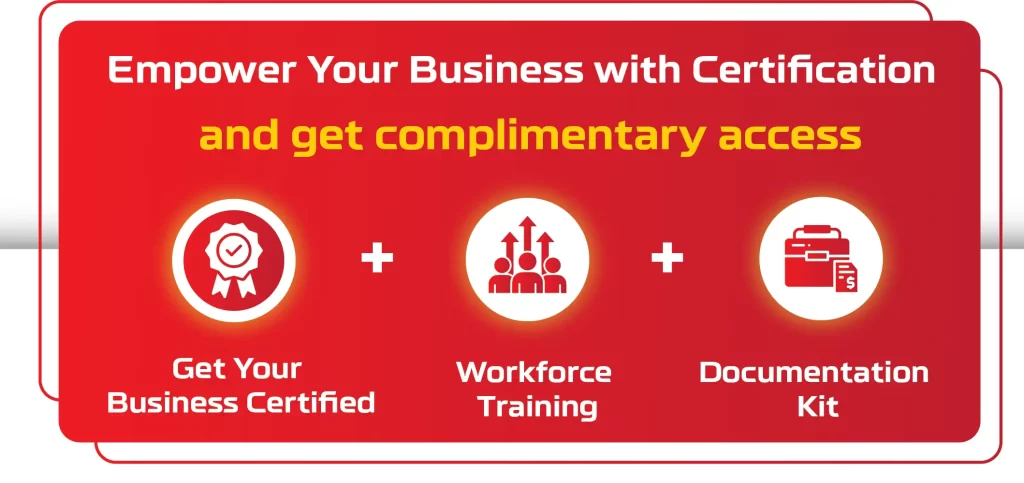
From startups to global enterprise giants, Certvalue empowers to extend the breadth and depth of their customer relationships








Card Industry Data Security Standard (PCI DSS). The Payment Card Industry Data Protection Standard (PCI DSS) was produced by five worldwide payment card brands as a uniform global standard for cardholder data security (VISA, MasterCard, JCB, AMEX, and Discover). The specifications of security management, policies, operations, and processes, as well as network configurations and software architecture to safeguard other cardholder data, are specified by this data security standard on a multilateral basis.

The PCI Data Security Standard is designed to function as a foundation of controls, delivering a standard minimum level of security for businesses and service providers that store, process, and send payment card data. Businesses that gather sensitive credentials are also required to comply with PCI. Card recognition codes, tracking material from a magnetic line or card circuit, PINs, PIN blocks, or any other payment card data needed to authenticate cardholders or authorize transactions are examples of sensitive authentication data. The PCI data security standard may overwhelm some firms, however, the regulations are scaled largely on an organization's transaction volume and data handling practices. The consequence is that PCI doesn't have to be awful if you run a small firm and don't hold credit card information.
Who should take PCI DSS compliance into the profile?
All enterprises that maintain, receive or communicate cardholder data, including those who are card provider members and other wireless carriers, ought to think about adhering to the PCI DSS. The credit card issuers would not authorize you to process their payment cards if you hadn't implemented the PCI compliance criteria and didn't have the PCI-DSS certification, even though the PCI Council lacks the legal ability to compel compliance. You can also face a fine. Consequently, you must obtain the PCI-DSS certification if you want to process recognized payment cards. It can be expensive and time-consuming to administer PCI compliance certification attainment. However, there are steps you can take to safeguard your cardholders that will make the procedure simpler.
What happens if businesses disregard PCI standards?
There is no governmental regulatory agency like the PCI SSC. However, if a business disregards its requirements, it might take severe penalties. An economic fine is the main effect of noncompliance. Legal expenses, banking fines (for each card taken), the cost of federal audits, and the cost of remediation are all examples of penalty fees for noncompliance (including an investigation by forensics experts).
The financial cost of not complying with the requirement could appear to be a significant disincentive, but the lack of confidence among significant banking organizations, outside partners, and customers poses a relatively long issue.
Which Steps Make Up PCI Compliance?
Observe
A hazard analysis supports in detecting the concerns and shortcomings that could imperil the operation, transportation, or preservation of credit card information. It should outline the IT environment that supports this data and specify how sensitive data flows from the beginning to the end of the sales cycle.
Work to fix
The goal of rectification is to address weaknesses and eliminate hazards within the enterprise. Favoring risks and vulnerabilities, defining the operating system (OS) patching mechanism, changing dangerous practices, adopting access control measures, and assessing the efficacy of preventive actions are all part of this step.
Document
The yearly approach and audit, which are dependent on the merchant's payments, make up the reporting aspect. The banks that manage their funds must get a report on compliance from merchants who perform more than 1 million transactions annually. Finally, the Attestation of Certification is a necessity for all PCI-compliant firms.
What Is Covered by PCI DSS?
Access control, virus protection, surveillance systems, cloud resources, and computer resource management are all described in the PCI criteria to preserve compliance. Based on the volume of card transactions a business does annually, the PCI SSC developed four PCI compliance levels.
Benefits of PCI DSS
Helps you adhere to international norms
The PCI DSS criteria were designed by five of the leading credit bureaus in the world to ensure that merchants follow certain security standards when they store, receive, and communicate cardholder data. This level of protection is compulsory for consumers. You can join other worldwide shops and organizations that are dedicated to data security and security mechanisms by achieving PCI compliance.
Establishes the basis for other regulations
Most of the other fundamental tenets of PCI DSS, such as reducing overall the volume of sensitive data you maintain, are in line with GDPR, ISO, and other international regulations for data security.
Avoid data leakage
Minimizing the likelihood of security alerts is the most apparent advantage of PCI DSS compliance and the main reason its controls are in place.
By implementing its standards, such as constructing firewalls, encrypting data, forming an information security management system, and other maintenance works, organizations may reinforce the most frequent vulnerabilities that attackers take advantage of.

The certificate is issued from a premium certification body and it can be verified from its -website. Every certificate comes with a unique certification number.

Conduct Gap Analysis to find any Shortcomings from the standard requirements.
Policies, procedures, Work Instructions, Evidences, Records, Training
Conduct frequent internal audit and management review meeting.
Apply corrective actions on the identified root cause or shortcomings
Certvalue make the ISO certification process in a simple way for every organization in bangalore to get their certification sitting at their place in lesser time and at an affordable cost.
Conduct Gap Analysis to find any Shortcomings from the standard requirements.
Policies, procedures, Work Instructions, Evidences, Records, Training
Undergo a thorough audit by Certvalue’s auditors to assess compliance.
Upon successful audit, receive your ISO certification from Certvalue.


Bottom-line of any business organization is profit and Customers are the only source of Profit. Certvalue will help balancing both customer and compliance requirement at the same time with the help of ISO certification

ISO certification is a tool to streamline and enhance the process performed internal to the organization. Certvalue indulges in inculcating best industry practices.

It is always about the Brand value of your organization in the market and ISO certification from Certvalue can make your organization to be an excel and stand out in the market globally

ISO certification is a basic requirement to bid or participate in any tenders floated by government or private sector. And ISO certification from Certvalue is an assurance win over the tenders.









WhatsApp us



